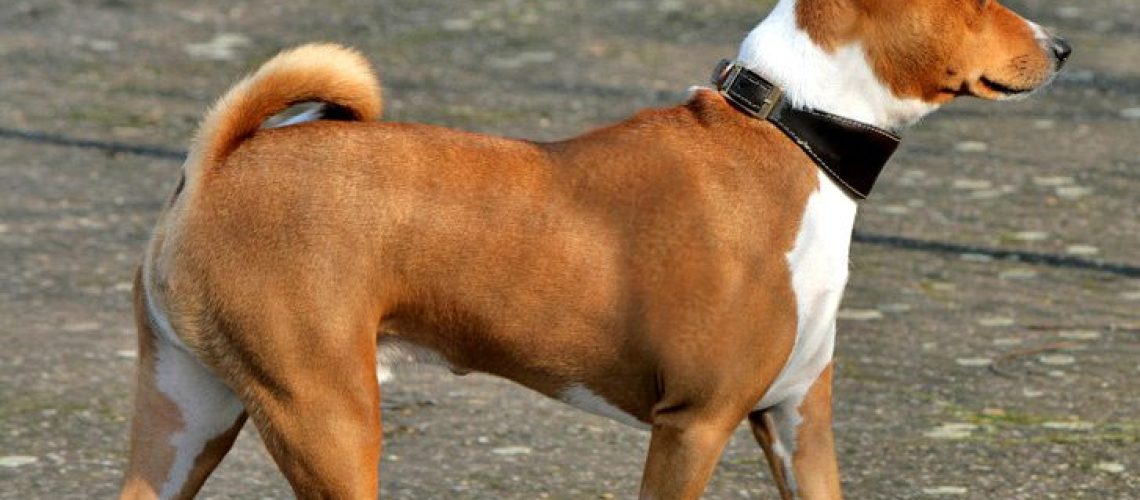Key Takeaways:
- Basenjis are known for their unique yodel-like vocalizations instead of barking.
- They are an ancient breed originating from Central Africa and were used for hunting small game.
- Basenjis have a strong prey drive and should be kept on a leash or in a securely fenced area.
- They have a highly independent nature and can be challenging to train, requiring consistent and patient handling.
- Regular exercise, mental stimulation, and socialization are crucial for a happy and well-behaved Basenji.
Are you a dog lover? Do you enjoy learning about different dog breeds and their unique characteristics? If so, then you're in for a treat! Today, we're going to delve into the world of Basenjis: an extraordinary breed that will captivate your heart. Understanding the ins and outs of this fascinating canine companion is not only essential for potential owners but also provides valuable insights into the wonderful diversity found within the dog kingdom. So, whether you're considering adding a Basenji to your family or simply curious about these remarkable creatures, join us as we explore the captivating world of Basenjis - their distinct traits, care needs, and why they have become such beloved companions across the globe. Get ready to embark on an exciting journey into the realm of Basenjis and uncover what makes them truly special!
What is a Basenji dog and what makes it unique?
Introducing the Basenji
The Basenji is a small to medium-sized breed of dog that originated in Central Africa. They have a short coat, erect ears, and a curly tail. One unique feature of the Basenji is their wrinkled forehead, which gives them a curious and alert expression. They come in various colors, including red, black, brindle, and tricolor.
The Barkless Dog
One of the most fascinating things about Basenjis is that they don't bark like other dogs. Instead, they make a variety of other sounds such as yodels, howls, and even screams. This trait makes them stand out from other breeds and has earned them the nickname "barkless dog." It's important to note that while they may not bark frequently, they are still capable of making noise when they want to communicate something.
Important things to know when taking care of a Basenji
Exercise Needs
Basenjis are an active breed that requires regular exercise to stay happy and healthy. They have high energy levels and enjoy activities like long walks or runs in a secure area. It's essential to provide them with enough physical and mental stimulation to prevent boredom.
Grooming Requirements
When it comes to grooming, Basenjis are relatively low-maintenance compared to some other breeds. Their short coat only requires occasional brushing to remove loose hair. However, it's important to note that they are fastidious self-groomers and tend to keep themselves clean.
Why is it important to train and socialize a Basenji puppy early?
Natural Independence
Basenjis have a natural independent streak, which can make training challenging at times. Starting training and socialization early is crucial to help them develop good behaviors and become well-rounded dogs. Early socialization exposes them to different people, animals, and environments, helping them become more adaptable and friendly.
Positive Reinforcement
Using positive reinforcement techniques such as treats, praise, and rewards is highly effective when training a Basenji puppy. They respond well to positive reinforcement and are eager to please their owners. Consistency and patience are key when working with this breed.
Why is the Basenji called the "barkless dog" even though it can make other sounds?
Vocalizations of the Basenji
While it's true that Basenjis don't bark like most other dogs, they are not completely silent either. Instead of barking, they produce unique vocalizations such as yodels or howls. These sounds are often referred to as "baroos." The reason they are called the "barkless dog" is because their vocalizations differ significantly from the typical barking sound that many other breeds produce.
The Origins of the Barkless Trait
The barkless trait in Basenjis can be traced back to their African ancestry. In their native regions of Central Africa, barking was not a desirable trait for hunting dogs. Instead, being quiet helped them sneak up on prey without alerting other animals in the area. Over time, this trait became ingrained in their genetic makeup.
Common health issues in Basenjis and how to prevent/manage them
Eye Problems
Basenjis are prone to certain eye conditions such as progressive retinal atrophy (PRA) and glaucoma. Regular eye examinations by a veterinarian can help detect these issues early on. It's also important to keep their eyes clean and free from debris to minimize the risk of infections.
Kidney Disease
Another health concern in Basenjis is kidney disease, specifically a condition called Fanconi syndrome. This affects the kidneys' ability to reabsorb important nutrients and can lead to dehydration and other complications. Regular check-ups and monitoring of urine samples can help identify any signs of kidney disease early on.
The independent nature of Basenjis as family pets and how to build a strong bond with them
Independent Yet Affectionate
Basenjis have an independent nature, which means they may not constantly seek attention or cuddles like some other breeds. However, this doesn't mean they don't form strong bonds with their owners. They are known to be loyal and affectionate towards their families, but on their own terms.
Bonding Activities
To build a strong bond with your Basenji, it's important to engage in activities that they enjoy. This could include interactive play sessions, puzzle toys, or even participating in dog sports such as agility or obedience training. Spending quality time together will help strengthen your relationship and create a deeper understanding between you and your furry friend.
The independent nature of Basenjis as family pets and how to build a strong bond with them
Understanding the Basenji's Independent Nature
Basenjis are known for their independent nature, which sets them apart from other dog breeds. Unlike some dogs that constantly seek attention and affection, Basenjis have a more self-reliant personality. They possess a strong sense of individuality and may not always display overt signs of affection towards their owners. This independence can be traced back to their origins as hunting dogs in Africa, where they were bred to work independently without constant guidance from humans.
Characteristics of an Independent Basenji
To better understand the independent nature of Basenjis, let's take a closer look at some of their key characteristics:
1. Self-sufficiency: Basenjis are capable of entertaining themselves and do not rely heavily on human interaction for stimulation.
2. Aloofness: While they may form strong bonds with their family members, Basenjis can also exhibit aloof behavior towards strangers or unfamiliar individuals.
3. Strong-willed: These dogs have a mind of their own and can be quite stubborn at times, making training a challenge if not approached correctly.
Building a strong bond with an independent Basenji requires patience, understanding, and consistent effort.
Building a Strong Bond with Your Basenji
While it may take some extra effort to build a strong bond with an independent Basenji, it is certainly achievable with the right approach. Here are some tips to help you foster a deep connection with your furry friend:
1. Respect Their Independence
Recognize and respect your Basenji's need for personal space and independence. Avoid overwhelming them with constant attention or physical contact when they seem uninterested or withdrawn. Allow them to approach you on their terms, and give them the freedom to explore their surroundings.
2. Positive Reinforcement Training
Basenjis respond well to positive reinforcement training methods. Use rewards such as treats, praise, or playtime to motivate and encourage desired behaviors. Keep training sessions short and engaging to maintain their interest and prevent boredom.
3. Engage in Interactive Play
Basenjis have a playful nature and enjoy activities that challenge their intelligence. Engage in interactive play sessions with puzzle toys or games that stimulate their problem-solving skills. This not only provides mental stimulation but also strengthens the bond between you and your Basenji.
Remember, building a strong bond with any dog takes time and effort. By understanding and respecting your Basenji's independent nature while providing love, patience, and consistent training, you can establish a deep connection that will last a lifetime.
.
What is the one thing that a Basenji Cannot do that other dogs can?
The Basenji has a unique larynx structure that prevents them from being able to bark, unlike most other dogs.
What issues do Basenji dogs have?
Basenjis are generally in good health and have an average lifespan of 10-12 years. They may experience common health issues such as bladder stones and hypothyroidism. It is important to schedule regular check-ups for early detection and to ensure they have a long and happy life.
What are the traits of a Basenji dog?
Basenjis are lively, curious, and highly energetic. They need plenty of regular physical activity to prevent boredom, as boredom can result in destructive behavior. It is necessary to have long play sessions in a yard with a secure fence or on a leash.
Can Basenjis be left alone?
Basenjis are dogs that are very attached to their families and prefer to be around people. However, they can be left alone for up to eight hours if necessary. It is important to note that Basenjis may become destructive when left alone, so crate training might be needed.
Do Basenjis like to cuddle?
They enjoy being together as a pair. They engage in activities such as playing, cuddling, and grooming each other regularly.

















